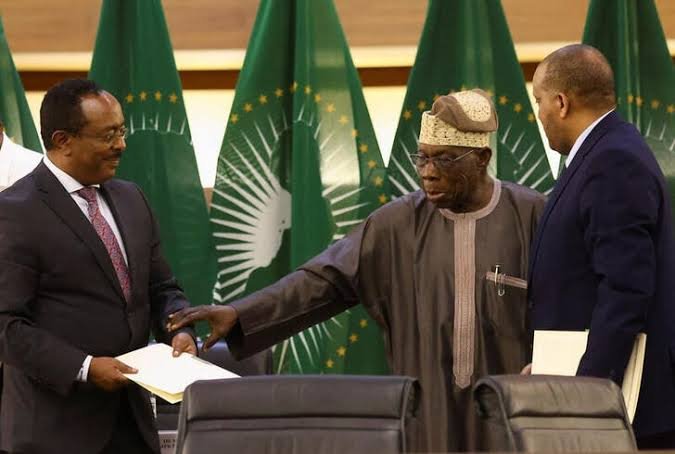Ethiopian gov’t, Tigray forces establish hotline following truce

The Ethiopian government and Tigrayan forces have established a telephone hotline following a truce struck last week, the African Union’s chief mediator Olusegun Obasanjo said on Monday as both sides meet in Kenya for talks on implementing the ceasefire.
On November 2, the federal government and regional forces from Tigray agreed to the cessation of hostilities, a diplomatic breakthrough two years into a war that has killed thousands and displaced millions.
The truce has raised hopes humanitarian aid can start moving back into a region where hundreds of thousands face famine.
Representatives of Ethiopia’s government and forces from Tigray are in the Kenyan capital, Nairobi, to discuss how to begin implementing the ceasefire, with the talks expected to last three or four days.
“The first sign for me of the progress after the signing of the agreement is the fact that between them they have exchanged a hotline,” Obasanjo told a news conference in Nairobi.
According to an official familiar with the talks, the hotline will address any flare-up in fighting and coordinate disengagements, with both sides recognising “the challenge of fully communicating with all their units to stop fighting”.
In a press release, the AU said the expected outcomes of the meeting “include modalities for silencing the guns, humanitarian access, and the restoration of services in the Tigray region”.
Implementing the ceasefire will be tough given concerns of ongoing fighting on the ground, unsettled political and territorial disputes, and an ambitious disarmament timeline.
The Tigray People’s Liberation Front (TPLF), the party that dominates the region, pledged to disarm their fighters fully within 30 days under the agreement.
Officials also want to agree to membership of an African Union-led panel of experts for monitoring, verification and compliance for the ceasefire this week, the source familiar with the talks told Reuters.
Former Kenyan President Uhuru Kenyatta, a co-mediator at the talks, said he hoped the parties would be able to work together to create a permanent resolution to the problem.
“We started in Pretoria, we are inching our way closer. We are now in Nairobi, we are very hopeful next time we will be in Mekelle for our [next] meeting and ultimately celebrate together in Addis Ababa,” Kenyatta said, referring to the capitals of South Africa, the Tigray region, and Ethiopia respectively.







